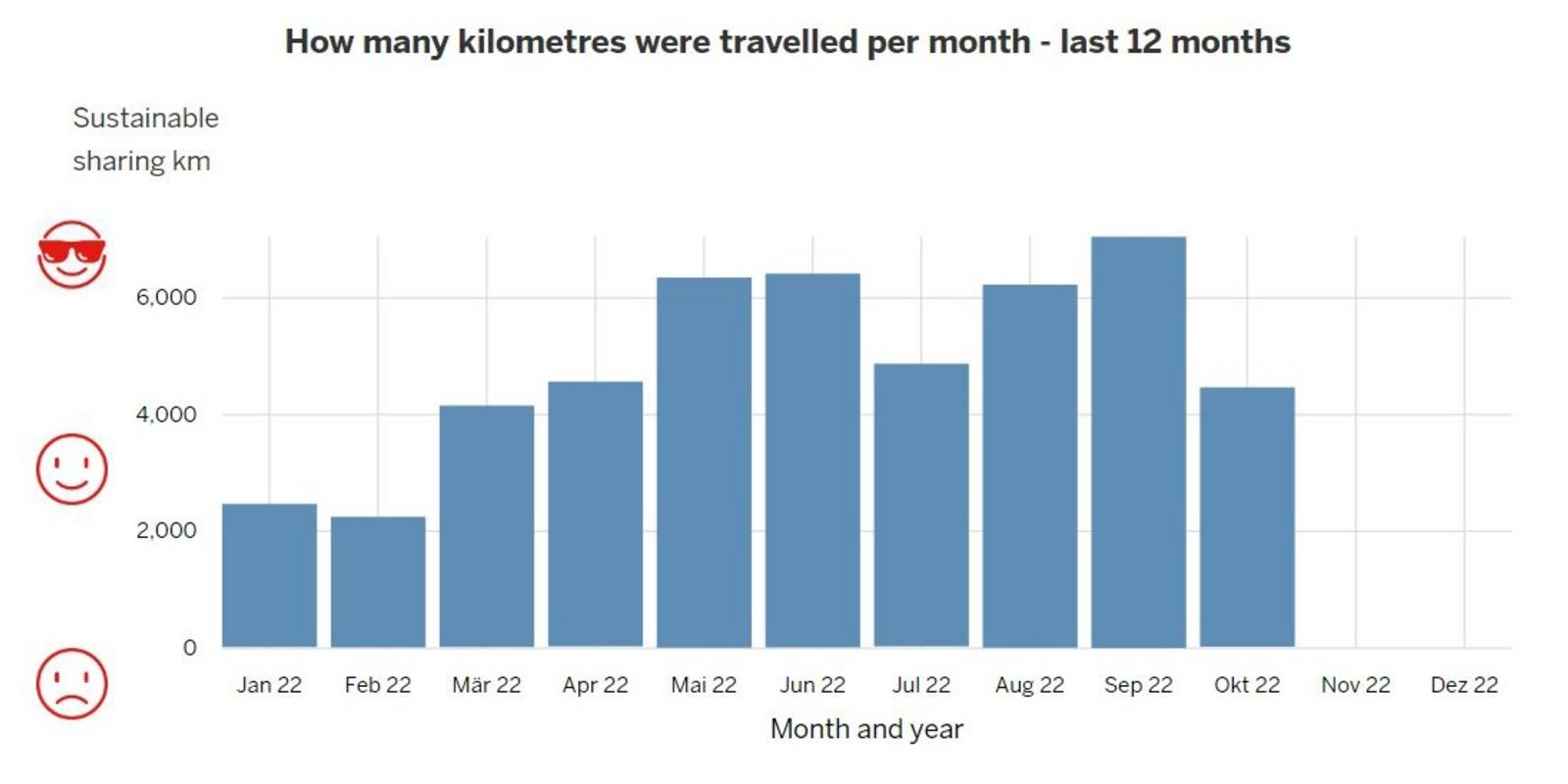
More is more! Why every additional sharing kilometre makes sense.
On the Mobility customer portal, business customers can find out how many kilometres their employees have travelled in recent months. As a study from France now confirms: the more sharing kilometres we travel, the better it is for the environment.
Companies that opt for Mobility’s corporate car sharing scheme benefit from various advantages. Instead of just a limited number of company vehicles, the entire Mobility fleet is available to them on a round-the-clock basis – in other words around 3’000 vehicles throughout the whole of Switzerland. What is more, corporate customers don’t have to worry about maintenance. Whether cleaning, repairs or service: fleet management is taken care of entirely by Mobility. “Companies that opt for business car sharing benefit from enormous flexibility as well as saving costs for company vehicles and parking spaces – and they reduce CO2 at the same time,” explains Anita Kirchberg, Head of B2B at Mobility. “So corporate car sharing is not just worthwhile from an economic point of view, it’s sustainable, too.”
On Mobility’s business customer portal, corporate customers can see how many kilometres their employees have travelled over the past twelve months. To do this, users log in to the Mobility website with the Mobility contract holder login and follow the path Profile/Statistics. In addition, users can find out what type of vehicle (electric, hybrid, petrol) was used to cover the distances – and how many of trips involved voluntary carbon offsetting. In addition, all invoices can be viewed on the customer portal dashboard, along with details of the fair play rules and rates.
Shared kilometres are good kilometres
The way the information is presented on the Mobility portal might appear to suggest that corporate customers are being motivated to travel as many kilometres as possible. But doesn’t the motto “less is more” apply, especially when it comes to using cars? Surely, high bars on the chart automatically mean more kilometres – and therefore increased traffic, costs and pollution? Not necessarily!
According to a recent study from France, what really counts is how these kilometres are covered. Ultimately, more shared kilometres always means fewer kilometres covered individually. The study demonstrates that car sharing has a positive impact on the environment. And there are a number of different reasons for this. Car sharers are more willing to part with their own car or go without buying a new one as compared to the average population. In addition, car-sharing users are more likely to travel regularly by bicycle, on foot or by public transport than others. Lengthier train journeys in particular have the advantage that the time can be used for work if necessary.
When it comes to transportation, too: it’s the mixture that makes all the difference
What is true for private users applies in equal measure to corporate clients. Carried out in France in 2019, the study involved a survey of more than 3,000 people who have access to a car-sharing service in their company. Around a quarter of the respondents stated that they had travelled less by car overall since the introduction of the corporate sharing service. 40% of users said that the way they used public transport had changed and that they were now travelling more by bus and train. Likewise, around 30% of the respondents stated that since the introduction of the car sharing service, they had started using a bicycle more or going on foot. B2B director Anita Kirchberg has witnessed this kind of development, too: “Today, company employees want to be able to decide spontaneously which means of transport suits them best.” For longer journeys, they might take the train, she says, only using a Mobility car for the last few kilometres – or perhaps even a rented bicycle. "And it’s precisely this flexibility that we enable through our corporate sharing scheme.”
In short: even though it may seem paradoxical at first glance, the motto for car sharing is actually “more is more”. After all, more sharing kilometres also means more sustainability in transportation.
Note: See here to read the French study “Le guide de l'autopartage pour les territoires” .